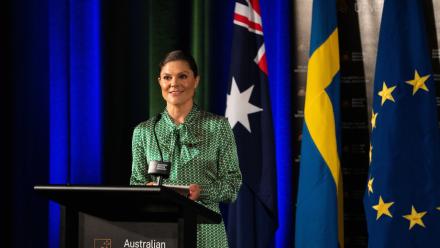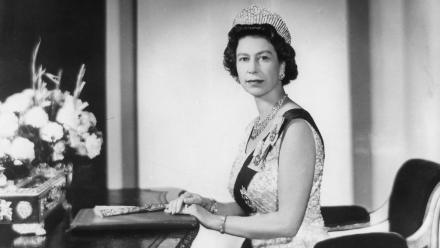VC’s Update – hotspots and structuring your working week
Hi everyone,
This week, Western Australia experienced their first major lockdown since March last year, with a five-day circuit breaker in place until tonight. Unfortunately, this means our plans for the Perth Grand Graduation event have been disrupted, and we are preparing to enact our contingency plans to ensure our Perth graduates are still able to celebrate their achievements safely. The silver lining is Perth has contained a possible outbreak, which means the requirement for students coming from WA to quarantine on arrival will hopefully lift soon. If you're planning to travel to the ACT from Perth or any hotspot, first, please check the ACT Health website, and read the latest update from our COVID office before you travel. We are working with ACT health to put in place bespoke quarantine arrangements using student accommodation if required for any affected students in Australia. If you are affected in weeks ahead, please contact ANU via the COVID Response Office. While the ACT has not had any local cases of COVID-19 for nearly seven months, we must remain particularly vigilant as the risk of a breakout remains ever present.
With COVID still causing disruption, it's started a lot of conversations in my office about how we structure our working week. I want ANU to be a flexible work environment, ensuring we can support our staff and students to balance family and carer responsibilities with career and study. In my Portfolio, we're looking at some staff returning to the office full-time - because their jobs require on-campus work; whereas others, including myself, are accessing flexible arrangements to work remotely some of the time. I know it can be hard as a supervisor to balance your team and everyone's personal circumstances against the demands of your work - but I encourage staff and supervisors to have open conversations about how you want to structure your work, and how this affects your team and work area. The same arrangements won't work for everyone, so it needs to be a two-way conversation that can evolve over time. If you are looking to work from home, even for a couple of hours a week, you'll need to ensure you've confirmed this arrangement with your supervisor, and completed the necessary paperwork (sorry...).
As you will know from my updates, I believe that community is at the heart of our university. One of the many things that makes us unique is the opportunity for so many students to live on our beautiful campus and immerse themselves in ANU life in and out of the classroom. Right now, the rental market in Canberra is highly constrained, and it can be hard, especially for students, to find the right accommodation. With COVID restrictions keeping our international borders closed, our on-campus halls and residences still have rooms available. My son lived his first two years on campus, had a great experience, and built up a broad network of friends and activity that extended well beyond his area of study. If you know someone who needs a room, please get in touch with the Accommodation Services team who are working hard to find rooms for every student who needs a place to live. I know there is a huge challenge that we have for many students moving away from home - so there are some grants and scholarships available to help cover the fees - but we need more. I want every student to have the opportunity of living their first year on our campus.
Earlier this week, I was reminded why our location in the nation's capital also sets us apart in the sector. I attended two addresses at the National Press Club, one delivered by our Prime Minister, and the other by Phillip Lowe, Governor of the Reserve Bank. Our proximity provides us with the opportunity to participate in conversations that shape Australia, and introduce our experts to leading policy and change makers.
I was joined by our new Federal Education Minister, the Hon Alan Tudge MP for the Prime Minister's address to the National Press Club. While it was instructive to hear the Prime Minister outline the Government's priorities for what is expected to be an election year, it was important to have the opportunity to sit down with Minister Tudge so early in his tenure in the portfolio. Minister Tudge is passionate about the University system - so no need to convince him of our importance for Australia's future. And while I am sure there will be robust discussions around the policy settings about how we can play our role most effectively, I will continue my discussions about how ANU is playing a central role in improving Australia's prosperity in the post-pandemic world, especially in light of the encouraging comments in the PM's speech about the importance of science and technology.
Just before the end of year holiday closure I signed a third amendment to the Genentech Research Collaboration and Exclusive Licence Agreement that will extend and expand this program to 10 years. This collaboration started in late 2013 Genentech agreed to collaborate with the Australian Phenomics Facility (APF) in a discovery program designed to scan the genome and uncover genes involved in driving sepsis. This month yet another major discovery from the collaboration has been published in Nature around the discovery of a protein that plays a critical role in cell death. It's a great outcome for ANU and research in Australia.
Next week is the start of our ANU traditions for 2021, with Grand Graduations on Monday 8; State of the University on Wednesday 10 and the Commencement Address on Monday 15 February. These events are cornerstones of our ANU experience, it's where we meet our new students, congratulate our graduates and set our priorities for the year ahead. I encourage everyone to register for these events and be part of our community.
Finally, in my last blog I mentioned the National Youth Science Forum and the 500 year 12 students who developed ideas on how we can use a COVID stimulus for tackling climate change. I provided the top five ideas to our Prime Minister; and presented the top idea from students Phoebe and Wen, as part of my Climate Change address for the 2021 United Nations Climate Adaption Summit.
Phoebe and Wen have suggested a great investment is to use an Australian discovery. By adding a small amount of seaweed - asparagopis taxiformis - to cow feed, reduces their methane emissions by about 90 per cent, with a corresponding increase in livestock productivity. Investing in the research and capital for farming the seaweed at scale around the tropics (which has the potential to improve water quality), provides an alternate sustainable source of jobs and income for developing countries whilst increasing livestock production and dramatically cutting greenhouse gas emission. I believe this is the type of thinking we need to tackle climate change - and just one that our global leaders need to consider.
I hope you have a nice weekend, I'll be harvesting my first raspberries of the season which for the first time ever have botrytis cinerea due to the rain - I hope it stays out of my vineyard - as noble rot in Pinot Noir is a disaster. I do like the green that rain brings - but if we can wait until April for any more rain, that would be fine by me.
Brian


